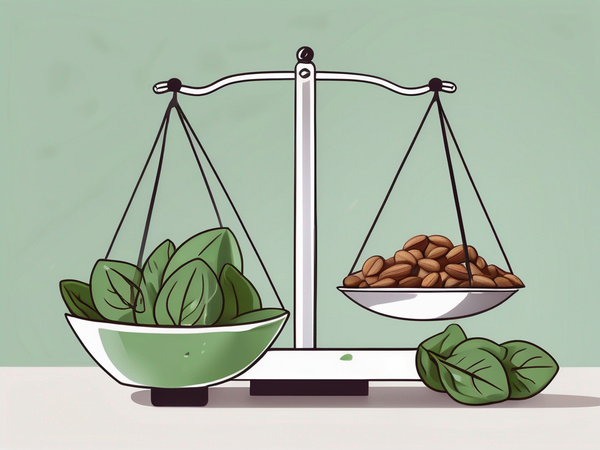How would you like your coffee — with milk, black, or green? Yes, you read that right. Green coffee not only exists but plays a vital role in weight loss management too!
So what is green coffee? How is it different from regular coffee, or is it the same as green tea? Let's explore this in depth.
When we think of coffee beans, we think of brown-colored seeds. But did you know that when they are sourced from the Coffea plant, these seeds look like small cherry-like fruits and were originally green in color? It is only when they are roasted at various temperatures that they produce different flavors. The level of roasting also determines their color.
While brown coffee beans have been in the spotlight for decades now, green coffee has been grabbing a lot of attention lately, and for all the right reasons. Green coffee is unroasted coffee beans that are way more beneficial than brown ones, owing to their most potent bioactive compound, called chlorogenic acid. From lowering serum cholesterol to controlling blood sugar levels, increasing Basal Metabolic Rate (BMR), controlling blood pressure levels, and supporting weight loss management, CGA does it all! Scroll down to learn more about this trending ingredient and how it can help with weight management.
Green Coffee vs. Black Coffee
Although the source for both coffee beans is the same, they are processed differently.
Initially, coffee beans exhibit a green color, and they have certain active compounds such as chlorogenic acid, antioxidants, caffeine, and other properties that have beneficial effects on overall health. The roasting process changes the color and chemical composition of its ingredients. There is no denying that it reduces the bitterness of the coffee beans and enhances their color and flavor but at the same time, roasting coffee beans at higher temperatures destroy their nutrients. It also changed the chemical composition, which would otherwise have plenty of health benefits.
Green Coffee vs. Green Tea
While green tea is quite popular among fitness enthusiasts, a new and promising beverage garnering equal attention in the market is green coffee. Both green tea and green coffee contain caffeine in moderate amounts. Caffeine, when consumed in limited amounts, can have beneficial effects such as boosting memory, increasing focus, and improving mood. Green tea and green coffee are also filled with antioxidants called polyphenols. The main polyphenol (antioxidant) present in green tea is EPCG (epigallocatechin), while coffee has chlorogenic acid as its potent polyphenol (antioxidant). These antioxidants help in the treatment and prevention of several chronic diseases.
Antioxidants are like superheroes in our bodies that try to deal with and destroy any harmful effects of the villains (free radicals) that cause damage (oxidative stress) to cells. Damage to cells caused by oxidative stress is the leading cause of multiple health disorders such as cardiovascular disease, neurological diseases, malignancies, renal diseases, skin diseases, respiratory diseases, aging, and several inflammatory diseases.
The Connection Between Weight Loss and Green Coffee

Green coffee is an effective weight-loss tool. Its fat-burning properties are linked to the presence of chlorogenic acid (CGA). While caffeine boosts metabolism and promotes fat loss, chlorogenic acid, found in higher concentrations in green coffee, leads to fat loss by blocking the release of glucose in the blood. CGA inhibits the conversion of glycogen into glucose in the liver by inhibiting an enzyme called glucose-6 phosphatase. When glucose is not available, the body turns to stored fat for energy.
Since the body starts burning fat, it leads to weight loss. Also, this effect helps people with diabetes lower their blood glucose levels. Further, chlorogenic acid and caffeine, when present in combination, prevent the piling up of fats in the body.
Benefits of Green Coffee Extracts in Supplements
Green coffee is gaining popularity in the fitness industry due to its fat-burning properties. The green coffee extract has been used and sold by companies either as a single-ingredient product or in combination with other ingredients having similar effects. You may find these products in the form of powders, thin oral strips, capsules, etc. Since green coffee is slightly bitter, green coffee extract in the form of supplements is the preferred choice for many, as they are not only hassle-free but also give you that caffeine kick while providing your body with the necessary nutrients. When it comes to weight management, supplements with green coffee help speed up the metabolic rate, thus helping you reach your weight goals faster.
Also, preparing green coffee could be a time-consuming process for people on the go, in such cases, supplements such as oral strips can come in handy as they are extremely portable, provide better bioavailability of all the nutrients in a single dose, and are fast dissolving.
Additional Factors Responsible for Weight Loss
While green coffee helps with the fat loss process, remember there’s more to it. Simply consuming green coffee alone may not do the trick. Here are a few factors you need to consider along with green coffee consumption for weight loss management.
- Healthy Diet: Along with sipping on green coffee, sticking to a healthy and mindful diet is crucial for helping you achieve fat loss. Opting for healthy food choices along with portion control will go a long way.
- Exercise: A healthy diet and exercise go hand in hand to give you the best results for shedding those extra kilos. Staying physically active is just as important.
- Stress Management: Weight loss management cannot be achieved without stress management. Stress hormones like cortisol can lead to a higher appetite for junk food, leading to an increase in belly fat and weight gain.
- Hydration: As trivial as it may sound, sufficient hydration can speed up your fat loss by helping you stay full and preventing you from unnecessary bingeing. Apart from weight management, hydration has many other health benefits too.
Other Health Benefits of Green Coffee
- Provides energy: The moderate caffeine content found in green coffee provides clean, sustainable energy without the caffeine crash as compared to regular coffee.
- Diabetes management: Green coffee helps lower blood glucose levels by slowing the breakdown of carbohydrates into sugars.
- Hypertension Management: The chlorogenic acid component of green coffee is useful in managing blood pressure levels.
- Manages Dyslipidemia: Studies have shown that green coffee is effective in improving lipid profiles, thereby reducing the risk of cardiovascular diseases.
- Boosts Metabolism: Caffeine in green coffee is believed to increase our BMR, thereby further aiding the process of fat loss.
- Anti-obesity Property: Chlorogenic Acid, present in green coffee, aids fat loss and can also be used to treat obesity.
Wrapping Up!
It’s safe to say that green coffee can be considered a new-age weight loss remedy. Green coffee, when consumed regularly along with healthy lifestyle practices, can lead to fat loss, thereby helping you in your weight management journey. Whether you prepare green coffee from the beans or supplements, make sure to be consistent to achieve the best results. Seek your doctor’s advice before starting with any new supplement.
References
Another benefit of drinking green tea or coffee - Harvard Health
Antioxidants in human health and disease - PubMed (nih.gov)

























